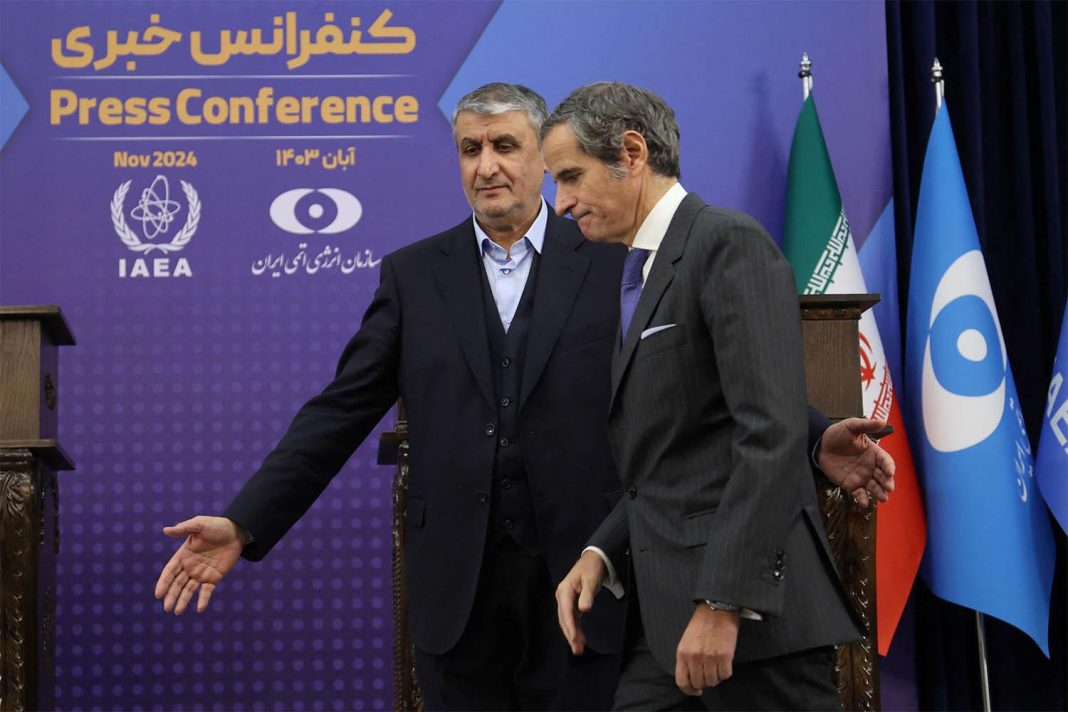Eslami made the remarks during a joint press conference with Director General of the International Atomic Energy Agency (IAEA) Rafael Grossi in the Iranian capital of Tehran on Thursday.
“Any resolution against Iran’s nuclear program will be met with Iran’s immediate response,” he said, emphasizing that the Islamic Republic, undeterred by pressure, will advance its nuclear activities within the framework of its national interests.
The remarks came a day after Reuters reported that European powers are pushing for a new anti-Iran resolution at the IAEA’s Board of Governors meeting next week to pile up pressure on Tehran.
Eslami added that such resolutions will naturally establish the right for Iran to take countermeasures.
“The main issue is that if the opposite side takes the path of confrontation, resolution and disruption against Iran, it will receive a reciprocal response.”
“If they take the path of interaction, Iran is willing to interact, but if they choose another path, Iran will take necessary decisions,” he continued.
He also noted that Iran has always followed the path of interaction and honored its obligations under the Joint Comprehensive Plan of Action (JCPOA) before it was derailed by the United States.
In 2015, Iran proved the peaceful nature of its nuclear program to the world by signing the JCPOA with six world powers.
However, Washington’s unilateral withdrawal in 2018 and its subsequent re-imposition of sanctions against Tehran left the future of the deal in limbo.
In 2019, Iran started to roll back the limits it had accepted under the JCPOA after the other parties failed to live up to their commitments.
Elsewhere in his remarks, Eslmai stressed that Iran’s nuclear program has been used as an excuse to impose tough sanctions on the country.
Over the past 20 years, he said, the countries opposing Iran’s interests fabricated cases and created ambiguity surrounding the nation’s nuclear activities while assassinated scientists and committed acts of industrial sabotage.
However, Iran today enjoys the nuclear technology, which is not borrowed but built on endogenous research under the supervision of the IAEA, he added.
Also during the conference, Grossi was asked about Israel’s threats to strike Iranian nuclear facilities, to which he replied, “I say this with regards to Iran… nuclear installations should not be attacked.”
